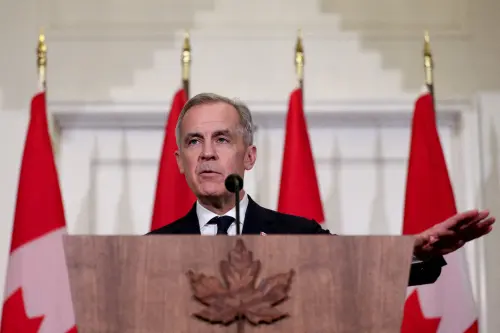Prime Minister Mark Carney stated that Canada could counteract the impact of U.S. tariffs by dismantling internal trade barriers, with a goal of promoting free trade across the country by July 1, following discussions with provincial and territorial leaders.
Carney announced plans to introduce legislation by July 1 to enable goods to move freely across the country without federal barriers. He emphasized that eliminating these internal trade barriers could more than offset the effects of any U.S. tariffs.
Research cited by Carney indicates that removing internal barriers could lower trade costs by up to 15% and expand the economy by 4% to 8%. He outlined three primary strategies to achieve this: harmonizing regulations among provinces, establishing mutual recognition of rules, and creating uniform national standards.
Business groups have long raised concerns about trade barriers among the 10 provinces and three territories, as well as the lengthy permitting process that can delay major resource projects like mines and oil pipelines.
In March, U.S. President Donald Trump imposed 25% tariffs on Canadian imports of steel and aluminum, with additional tariffs announced for April 2. With 75% of Canadian exports going to the U.S. and a third of imports originating from there, Canada's economy remains susceptible to ongoing trade tensions.
Carney, who recently assumed office and is expected to announce an election for April, has yet to communicate with Trump or outline specific strategies for dealing with the president.
Carney also mentioned that reducing internal trade barriers would involve lifting restrictions on labor mobility. To streamline approvals for major infrastructure projects, his government will implement a "one-window approval process" aimed at eliminating redundant requirements between federal and provincial environmental assessments. He assured that an oil and gas cap would be focused on limiting emissions instead of production.
In cooperation with the provinces, Carney agreed that the federal government would allocate funds to create transportation links to resource extraction areas and develop a comprehensive national trade and energy corridor strategy.
To assist workers and businesses impacted by the tariffs, Carney noted that the government would facilitate easier access to employment insurance for those laid off and allow businesses to defer corporate income tax payments and remittances.
